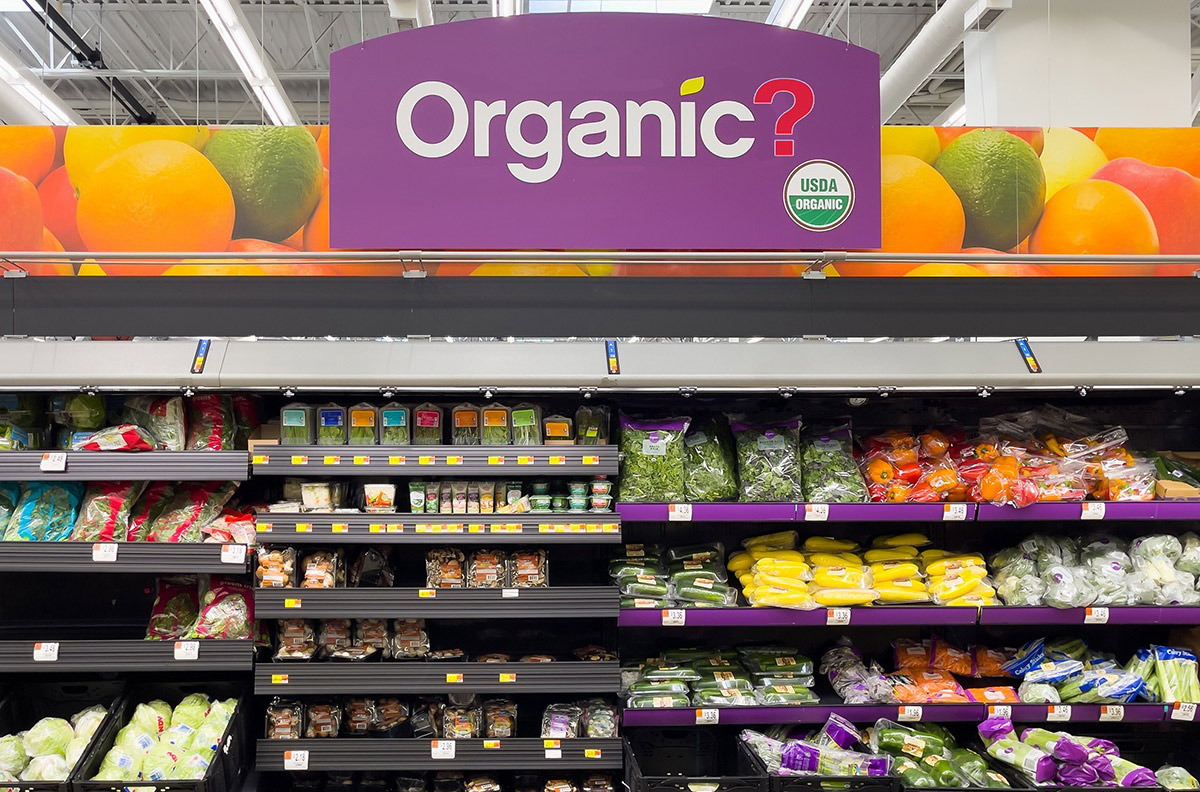Will the Strengthening Organic Enforcement Rule help to stop import and domestic fraud in the organic market?
In 2007, the owner of an organic soybean processing plant in California received a railcar of what she thought—and paid $100,000 for—was organic soybeans. But lab testing revealed the soybeans were 20% genetically modified. In 2017, an investigative report in the Washington Post detailed fraudulent shiploads of organic corn and soybeans from Turkey and Ukraine coming to the U.S.
Those are just two examples of an ongoing problem that threatens to undermine the organic industry and consumer confidence in organic food: fraud.
The U.S. Department of Agriculture has responded with its Strengthening Organic Enforcement rule to crack down on fraud, but will it be enough?
Fraudulent organic corn and soy are sold “every day”
Fraud is “unquestionably, the biggest threat to organic,” says Lynn Clarkson, CEO of Clarkson Grain, a supplier of organic and non-GMO grains based in Illinois. “Every day, conventional corn and soy are sold with fraudulent organic certification.”
“Organic has been a very appealing target for fraudsters,” says Gwendolyn Wyard, founding partner of Strengthening Organic Systems, LLC, a new advisory firm focused on preventing organic fraud. “We have the perfect recipe because we have demand exceeding supply, and, in many cases, a premium price.”
With premium prices for organic commodities, criminals or even some farmers try to cash in by selling grains or produce that are grown using conventional methods—with pesticides and even GMOs—as organic in violation of the National Organic Program rules.
“The temptation to cheat is enormous,” Clarkson says. “As long as there’s a premium for organic, the temptation is going be right out there in front.”
One of the underlying factors driving fraud is the greater demand for organic corn and soybeans than the U.S. supply of such grains, which are used in organic poultry production. As a result, the U.S. relies heavily on imports of organic grains. About 26% of organic corn and 76% of organic soybeans used for poultry feed in the U.S. come from abroad, according to Mercaris, an organic market data firm.
Those grains are coming from the Black Sea region including Turkey and Russia, as well as Argentina and Africa.
Countries in the Black Sea region are suspected of shipping fraudulent supplies of those grains, according to John Bobbe, an organic farmer in Wisconsin and former director of OFARM, which oversees organic farmer cooperatives in the Midwest.
“I tracked 13 ships over the years that were suspected to have fraudulent shipments. If they came from Turkey or the Black Sea region, they were suspect,” Bobbe says.
Organic imports from India and Argentina are also suspect, Clarkson says. India has had a reputation for fraudulent shipments of organic cotton. In early 2021, the U.S. Department of Agriculture’s National Organic Program (NOP) ended its Organic Recognition Agreement with India due to concerns over the organic integrity of Indian products coming to the United States.
“Some of the issues that we ran into with India is that the government oversight control systems there were weak,” Wyard says.
Clarkson cites a recent example of potential fraud. A soybean processor in Canada is importing large quantities of organic soybeans from Ethiopia and India. The processor then ships the processed soybean oil and meal to poultry processors in the eastern United States with a label saying it is a product of Canada.
“We’re pretty sure that it involves a lot of fraudulent material,” he says.
Clarkson says it’s easy for criminals to engage in organic fraud. “As long as they have a piece of paper that says organic on it, nobody’s going to stop them,” he says.
“We have a certification system that’s very good, but the fraudsters succeed because they find the gaps,” Wyard says.
Fraud concerns with organic produce and peanuts
 There have also been domestic organic fraud cases. In 2019, Missouri farmer Randy Constant was convicted and sentenced to 10 years in prison for selling $250 million of fraudulent organic grains. In 2020, South Dakota farmer Kent Anderson was indicted for selling $71 million in fraudulent organic grain and seeds. Earlier this year, in separate cases, a farmer in Iowa and another in Minnesota pleaded guilty to selling conventionally grown crops as organic in multi-million-dollar fraud schemes.
There have also been domestic organic fraud cases. In 2019, Missouri farmer Randy Constant was convicted and sentenced to 10 years in prison for selling $250 million of fraudulent organic grains. In 2020, South Dakota farmer Kent Anderson was indicted for selling $71 million in fraudulent organic grain and seeds. Earlier this year, in separate cases, a farmer in Iowa and another in Minnesota pleaded guilty to selling conventionally grown crops as organic in multi-million-dollar fraud schemes.
“Right here in our own backyard, the Midwest, we have some pretty significant cases of fraud,” Wyard says.
While fraud in the organic grain market has received the most attention, there is also a likelihood of fraud in other organic commodities such as produce and nuts.
“We’ve been very focused on grain because that’s where we’ve seen the fraud occur, but I think produce is another area that it occurs,” Wyard says. “The word out there is that it’s an issue.”
Produce is a very lucrative category within the organic industry; consumers buy more organic produce than any other organic food item.
Peanuts may also be a problem. An organic peanut farmer in Georgia, who wished to remain anonymous, said: “I am worried about fraud in the organic peanut market with conventionally grown peanuts leaving the U.S. and coming back in from Mexico as organic. I don’t have specifics but have heard that the practice goes on. We have enough problems keeping them grown organically here to have more production coming in to compete with.”
As the organic peanut farmer says, he and other U.S. organic farmers suffer as cheap fraudulent imports undercut their ability to earn a fair price for their crops.
“Any organic fraud really hurts the majority of domestic organic farmers. That’s a real impact on farmers who are following all the rules and taking a lot of care in managing their farm organically,” says Kate Mendenhall, executive director of the Organic Farmers Association.
Strengthening Organic Enforcement Act
To address the fraud problem, the U.S. Department of Agriculture published the Strengthening Organic Enforcement (SOE) rule earlier this year. SOE aims to support strong organic control systems, improve farm to market traceability, increase import oversight authority, and provide robust enforcement of the organic regulations.
Some requirements of SOE include certification of traders and producer groups, NOP Import Certificates for all organic imports, and increasing authority for more rigorous on-site inspections of certified operations, among others.
“I do think that the Strengthening Organic Enforcement Act or rule will help,” Mendenhall says. “They’ve closed a lot of gaps that were creating some loopholes and lack of audit trail.”
“There are many requirements, many parts of the rule where the total sum of all the parts is going to reduce fraud significantly,” Wyard says.
Requiring traders and brokers to be certified organic is an important step to close loopholes, according to Wyard. She adds that “literally thousands of operations” will have to be certified by March 19, 2024 when the SOE rule takes effect.
SOE will require electronic import certificates for all organic products and ingredients coming into the U.S. In addition, U.S. Customs and Boarder Protection (CBP) expanded its list of Harmonized Tariff Schedule codes to include 84 organic commodities. Such codes are used by CBP to track the volume, value, and origin of products imported into the U.S.
“The requirements to get across the border and everything that takes place with verification through customs and border protection; that’s going to be much stricter,” Wyard says.
SOE also requires organic inspectors and certifiers to conduct traceability and mass balance audits. The latter involves verifying that a quantity of, say, organic soybeans coming into the U.S. matches the amount of organic soybeans grown and harvested in the country of origin. If the import quantity is greater than the production, then fraud is suspected.
While she is hopeful about SOE, Mendenhall believes more will need to be done to stop fraud.
“I’m confident there are improvements in the Strengthening Organic Enforcement rule that will help deter fraud. However, we can’t stop with that rule. We have to keep learning and modernizing our systems.”
Need to increase domestic organic production
The best solution to stopping fraudulent organic imports is to increase U.S. domestic production of organic crops.
“I think increasing domestic grain production is key,” Mendenhall says. “We can’t welcome them (new organic farmers) into a market if we’re not cutting out import or domestic fraud. Domestic organic production is key, but we also must take out the supply that shouldn’t be there in the first place.”
Clarkson sees a bleak future for organics if the fraud problem is not stopped.
“I want to be hopeful for organic but if the consumer reaches the conclusion that 50% to 60% of his organic product is not really organic, then the whole market disappears.”
Stopping fraud will require an all-hands-on-deck effort in the organic industry.
“We really have to be working together as an organic community,” Mendenhall says.
Resources for Organic Fraud Prevention:
Alliance for Organic Integrity. Organization that aims to deliver tools that help prevent fraudulent products from entering organic supply chains. https://alliancefororganicintegrity.bio/.
Organic Services. An international strategy and management consultancy focusing on integrity solutions to combat fraud and misuse of quality claims. https://www.organic-services.com/.
Strengthening Organic Systems, LLC. Advisory firm helps businesses comply with the USDA’s Strengthening Organic Enforcement Rule and protects their brands from organic fraud. https://organicsos.com/.









